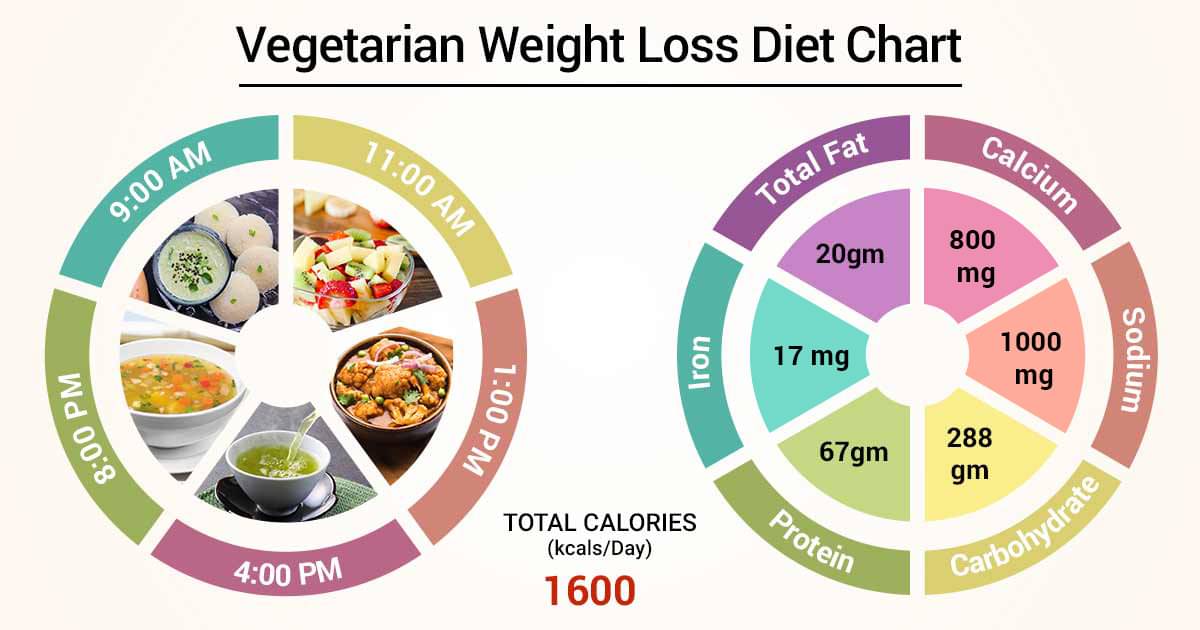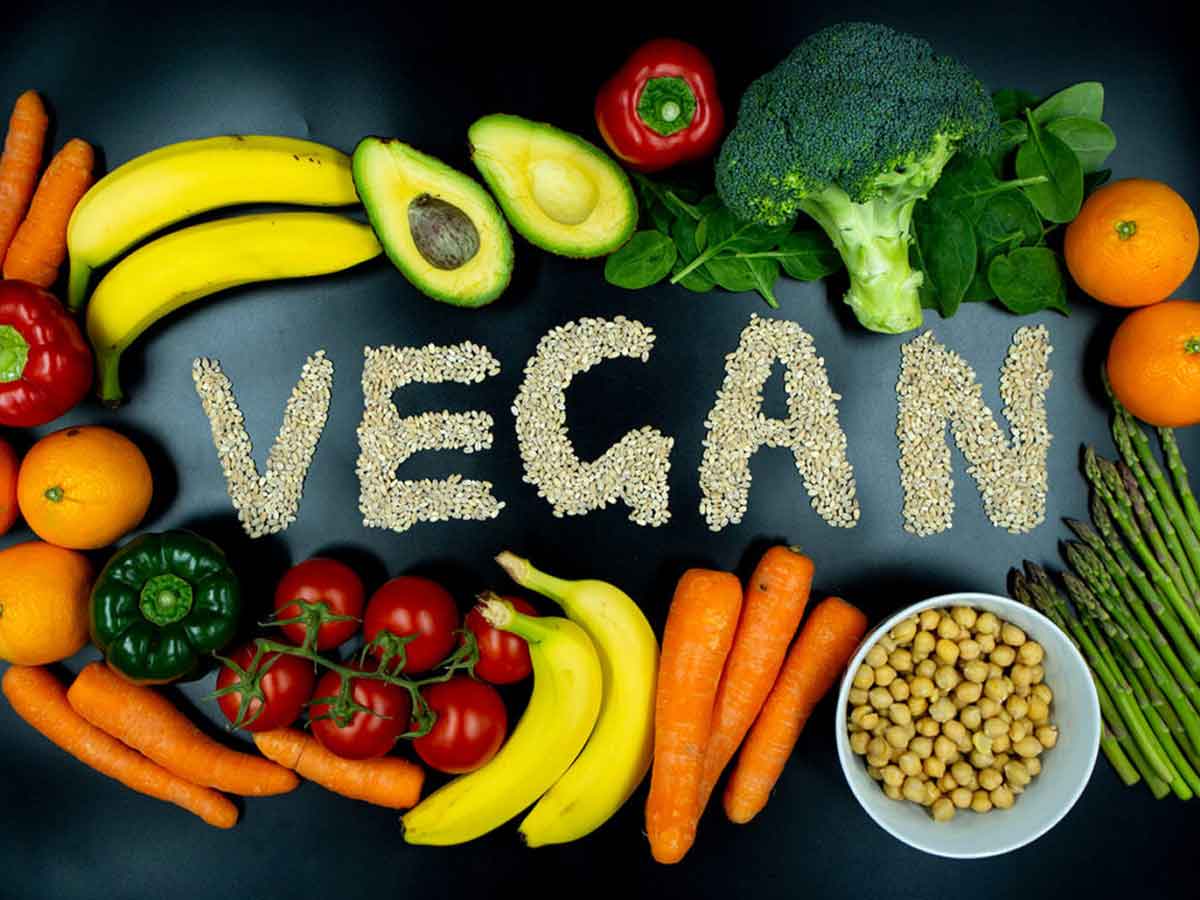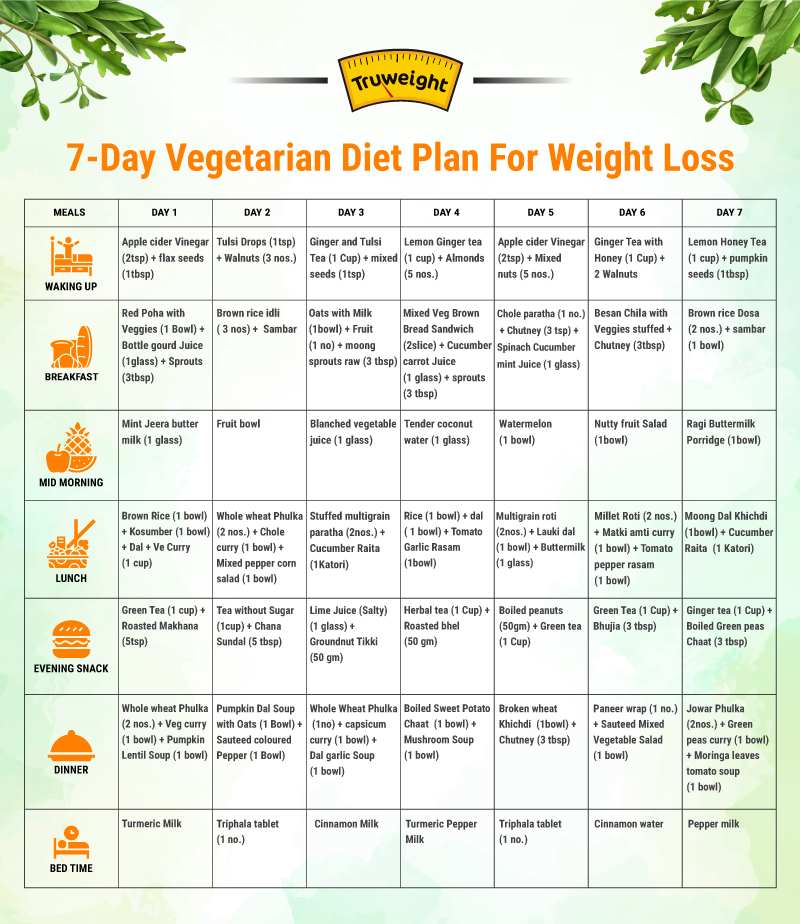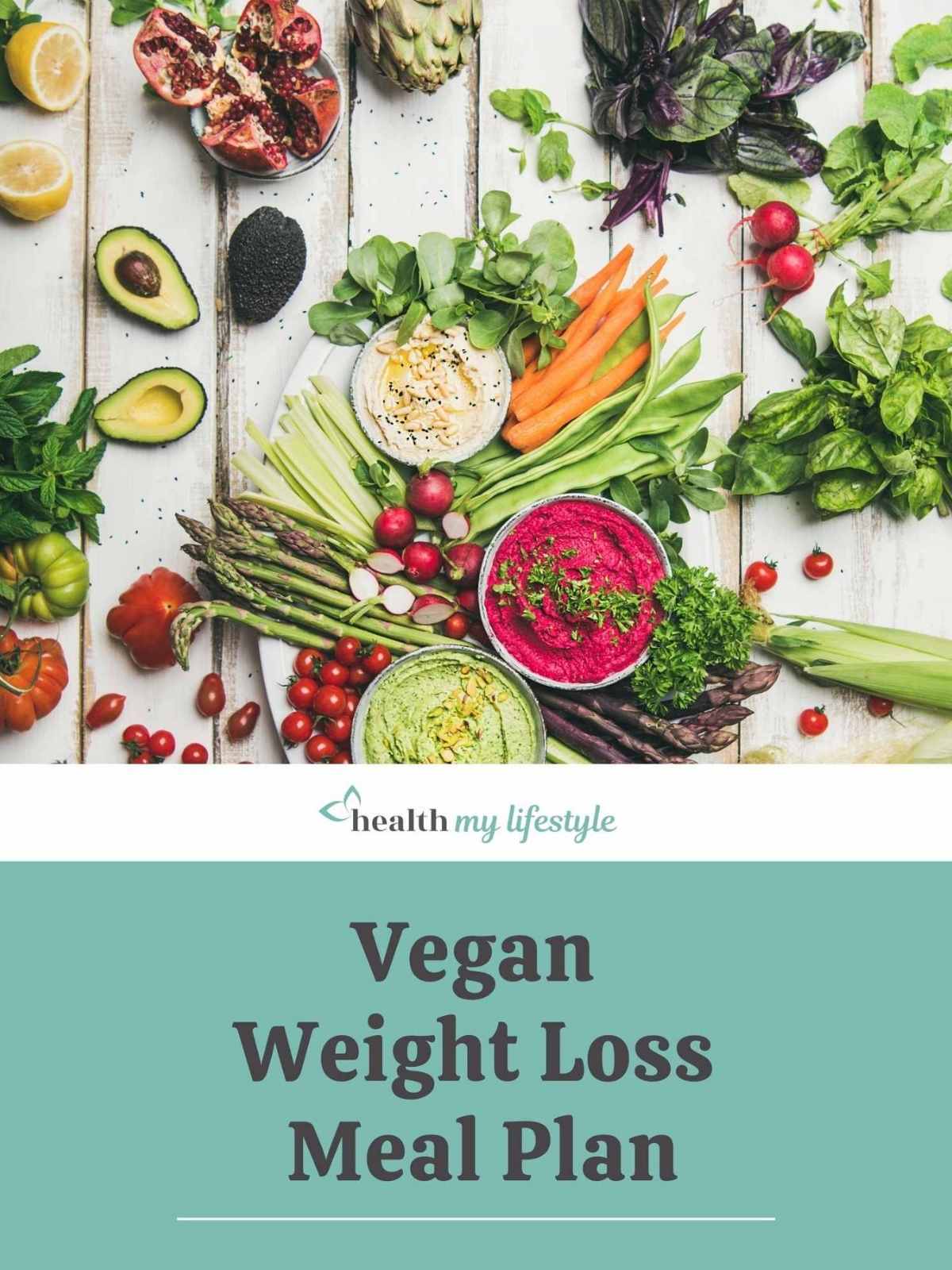How a Vegetarian Lifestyle Can Support Healthy Weight Management
A vegetarian diet has gained significant attention in recent years due to its potential health benefits, including weight management. The question “will I lose weight on a vegetarian diet?” is a common concern for those considering this lifestyle change. Understanding the role of a vegetarian diet in weight loss and debunking misconceptions is crucial for making informed decisions.
A vegetarian diet can contribute to weight loss by promoting the consumption of nutrient-dense, low-calorie foods such as fruits, vegetables, whole grains, and legumes. These foods are naturally high in fiber, which aids in digestion, promotes satiety, and reduces overall calorie intake. Additionally, plant-based diets tend to be lower in saturated fats and cholesterol, which are associated with weight gain and other health issues.
It is essential to recognize that a vegetarian diet alone may not guarantee weight loss. Achieving and maintaining a healthy weight involves understanding the basic principles of calorie balance and macronutrient composition. A well-planned vegetarian diet can meet these requirements, but it is crucial to be mindful of portion sizes and the nutritional content of meals.
Understanding Nutritional Requirements for Weight Loss
To effectively answer the question “will I lose weight on a vegetarian diet?”, it is essential to understand the fundamental principles of weight loss. Achieving a calorie deficit, where you consume fewer calories than you burn, is the key to shedding pounds. Additionally, focusing on macronutrient composition, including the right balance of proteins, carbohydrates, and fats, can further support weight loss efforts.
A well-planned vegetarian diet can meet these nutritional requirements and promote healthy weight loss. Nutrient-dense vegetarian foods, such as lentils, chickpeas, tofu, quinoa, nuts, seeds, whole grains, fruits, and vegetables, are excellent sources of protein, fiber, and healthy fats. These nutrients help maintain muscle mass, support satiety, and reduce overall calorie intake, making them ideal for weight loss.
For example, incorporating protein-rich plant-based foods like lentils and tofu into meals can help build and preserve muscle mass, which is crucial for maintaining metabolism and overall health during weight loss. Fruits and vegetables, high in fiber and water content, contribute to feelings of fullness and reduce the likelihood of overeating. Furthermore, healthy fats from nuts, seeds, and avocados can provide energy and support the absorption of fat-soluble vitamins.
The Role of Physical Activity in Vegetarian Weight Loss
While following a vegetarian diet can contribute to weight loss, incorporating regular exercise is essential for optimal results. Physical activity not only helps increase calorie expenditure but also supports muscle maintenance, overall health, and mental well-being during weight loss.
As a vegetarian, it is crucial to choose physical activities that suit your lifestyle and preferences. Some popular options include yoga, Pilates, running, swimming, cycling, and weightlifting. Engaging in a variety of activities can help prevent boredom and injury while ensuring a balanced fitness routine.
To stay motivated and injury-free, consider the following tips:
- Set realistic goals: Establish specific, measurable, achievable, relevant, and time-bound (SMART) fitness goals to guide your progress.
- Create a schedule: Plan your workouts in advance and treat them as non-negotiable appointments.
- Find a workout buddy: Exercising with a friend can help increase accountability and enjoyment.
- Mix it up: Incorporate different activities to challenge your body and prevent plateaus.
- Listen to your body: Rest when needed and avoid overtraining to prevent injuries and burnout.
- Stay hydrated: Drink plenty of water before, during, and after workouts to support performance and recovery.
Potential Challenges and Solutions for Vegetarian Weight Loss
Adopting a vegetarian diet for weight loss can present unique challenges, but with the right strategies, these obstacles can be overcome. Here are some common challenges and potential solutions:
Nutrient Deficiencies
Vegetarians may be at risk of certain nutrient deficiencies, such as vitamin B12, iron, calcium, and omega-3 fatty acids. To prevent deficiencies, consume fortified foods, such as plant-based milks and cereals, and consider taking supplements as needed. Consult a healthcare professional or registered dietitian for personalized recommendations.
Social Pressures
Dining out or attending social events may present challenges when maintaining a vegetarian diet. To navigate these situations, research restaurants in advance for vegetarian options, bring your dish to share, or eat beforehand if necessary. Communicate your dietary preferences and needs openly and confidently.
Limited Food Options
Limited food options can make meal planning and grocery shopping more challenging. To overcome this, explore a variety of plant-based protein sources, such as tofu, tempeh, seitan, and various legumes. Experiment with new recipes and cooking techniques to keep meals interesting and enjoyable.
Plateaus and Weight Loss Stalls
Plateaus are common during weight loss, and they can be frustrating. To break through a plateau, reassess your calorie intake and macronutrient composition, ensuring you maintain a calorie deficit. Adjust your physical activity level, incorporate new exercises, and consider consulting a professional for personalized guidance.
Emotional Eating and Stress
Emotional eating and stress can hinder weight loss efforts. Develop healthy coping mechanisms, such as practicing mindfulness, meditation, or engaging in hobbies and activities that promote relaxation and stress reduction.
Real-Life Success Stories: Inspiration from Vegetarian Weight Loss Journeys
Understanding the potential of a vegetarian diet for weight loss often requires real-world examples. Here, we share inspiring stories of individuals who have successfully shed pounds and improved their health by adopting a plant-based lifestyle.
Sarah’s Story: Overcoming Emotional Eating
Sarah, a 35-year-old marketing manager, struggled with emotional eating and weight gain for years. After adopting a vegetarian diet, she discovered new, healthier coping mechanisms and lost 30 pounds in six months. Sarah’s experience demonstrates the power of a vegetarian diet in addressing emotional eating and promoting weight loss.
John’s Story: Navigating Social Pressures
John, a 42-year-old IT consultant, found it challenging to maintain a vegetarian diet while traveling for work and attending business dinners. By researching restaurants in advance, communicating his dietary preferences, and bringing his dish to share, John successfully navigated social pressures and lost 45 pounds in a year.
Emily’s Story: Breaking Through Plateaus
Emily, a 28-year-old graphic designer, hit a weight loss plateau after losing 15 pounds on a vegetarian diet. By reassessing her calorie intake, incorporating new exercises, and consulting a registered dietitian, Emily broke through her plateau and lost an additional 20 pounds.
These success stories showcase the diverse challenges and triumphs of individuals who have adopted a vegetarian diet for weight loss. By learning from their experiences, readers can draw inspiration and motivation to embark on their weight loss journey.
Expert Opinions and Scientific Research on Vegetarian Weight Loss
Numerous experts and scientific studies support the potential of a vegetarian diet for weight loss. Research has shown that vegetarians tend to have lower body mass indexes (BMIs) and overall body weights than non-vegetarians. Moreover, a well-planned vegetarian diet can provide all the necessary nutrients for weight loss while promoting satiety and reducing calorie intake.
According to a study published in the Journal of Geriatric Cardiology, vegetarian diets are associated with lower body weight, reduced systolic and diastolic blood pressure, and improved lipid profiles. Additionally, a 2016 review in the Journal of the Academy of Nutrition and Dietetics concluded that vegetarian diets are effective for weight loss, with an average loss of 3.4 to 9.3 pounds over 18 weeks compared to non-vegetarian diets.
Expert recommendations emphasize the importance of a balanced vegetarian diet for weight loss. Dietitian and nutritionist Julieanna Hever, author of The Vegiterranean Diet, suggests focusing on nutrient-dense whole foods, such as fruits, vegetables, whole grains, legumes, nuts, and seeds, while limiting processed and high-calorie foods. She also highlights the importance of mindful eating and portion control to support weight loss goals.
While a vegetarian diet can be effective for weight loss, it is essential to acknowledge potential drawbacks or limitations. Vegetarian diets may require careful planning to prevent nutrient deficiencies, and individual results may vary depending on factors such as age, sex, genetics, and physical activity levels. Consulting a healthcare professional or registered dietitian can help ensure a safe and effective weight loss plan.
Creating a Balanced Vegetarian Meal Plan for Weight Loss
Designing a balanced vegetarian meal plan for weight loss involves focusing on nutrient-dense foods and appropriate portion sizes. Here are some tips and a sample meal plan to help you get started:
Meal Planning Tips
- Include a variety of fruits, vegetables, whole grains, legumes, nuts, and seeds in your meals.
- Practice portion control by using smaller plates and measuring serving sizes.
- Plan meals and snacks in advance to avoid impulsive, high-calorie choices.
- Incorporate lean protein sources, such as tofu, tempeh, seitan, and plant-based protein powders.
- Stay hydrated by drinking plenty of water throughout the day.
Sample Vegetarian Meal Plan
Breakfast: Overnight oats with chia seeds, almond milk, mixed berries, and a sprinkle of chopped almonds.
Morning Snack: A small apple with 1-2 tablespoons of natural peanut butter or a handful of baby carrots with hummus.
Lunch: Quinoa salad with mixed greens, chickpeas, cucumber, cherry tomatoes, avocado, and a lemon-tahini dressing.
Afternoon Snack: A small banana with a handful of mixed nuts or a cup of Greek yogurt with a handful of blueberries.
Dinner: Grilled tofu or tempeh with roasted vegetables, brown rice, and a side salad with balsamic vinaigrette.
Evening Snack: A small bowl of mixed berries or a piece of dark chocolate.
Remember, individual calorie needs may vary, so consult a healthcare professional or registered dietitian to determine the appropriate calorie intake for your weight loss goals.
Maintaining Long-Term Weight Loss with a Vegetarian Lifestyle
Achieving weight loss with a vegetarian diet is a significant accomplishment, but maintaining that weight loss over time is equally important. Here are some strategies to help you sustain your weight loss and continue reaping the benefits of a vegetarian lifestyle:
Establish Sustainable Habits
Creating long-term weight loss success requires adopting sustainable habits. Focus on making gradual changes to your diet and physical activity levels that you can maintain in the long run. Avoid extreme restrictions or quick-fix solutions, as they are often difficult to sustain and may lead to weight regain.
Practice Self-Compassion
Maintaining weight loss can be challenging, and setbacks are inevitable. Instead of criticizing yourself for slip-ups, practice self-compassion. Acknowledge your feelings, learn from your experiences, and get back on track as soon as possible.
Monitor Progress
Regularly tracking your progress can help you stay accountable and motivated. Consider using a food diary, fitness tracker, or smart scale to monitor your dietary intake, physical activity levels, and weight loss progress.
Stay Engaged in the Vegetarian Community
Connecting with other vegetarians can provide support, inspiration, and motivation. Join online forums, attend local vegetarian meetups, or participate in vegetarian events to engage with like-minded individuals and learn from their experiences.
Continuously Improve
Aim for continuous self-improvement rather than perfection. Regularly evaluate your dietary patterns, physical activity levels, and overall lifestyle to identify areas for improvement and make adjustments as needed.
By incorporating these strategies, you can maintain your weight loss and enjoy the long-term benefits of a vegetarian lifestyle. Remember, weight loss is a lifelong journey, and every step you take towards a healthier, more plant-based lifestyle is a step in the right direction.









